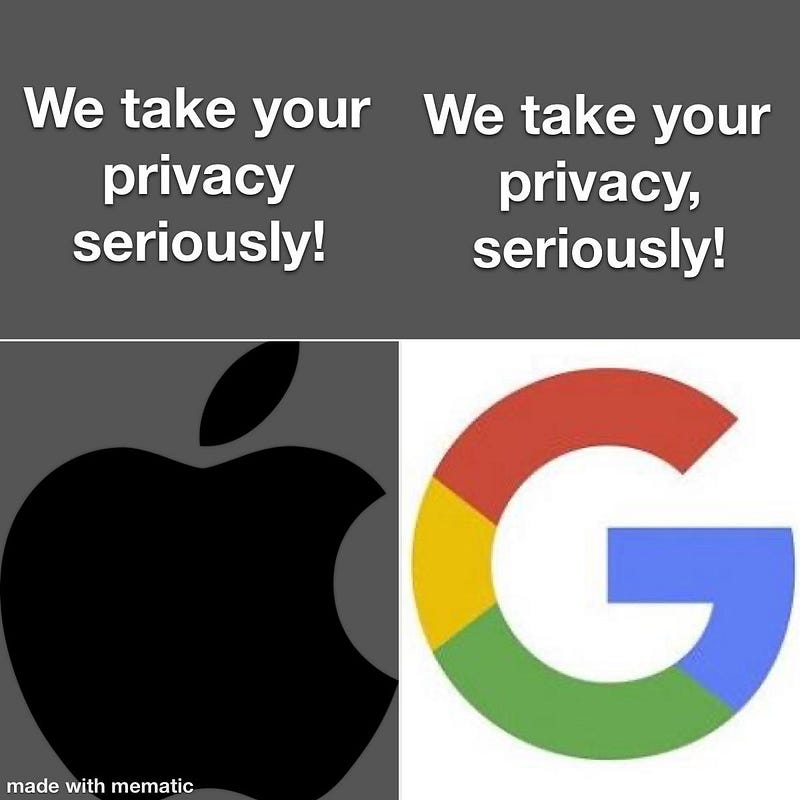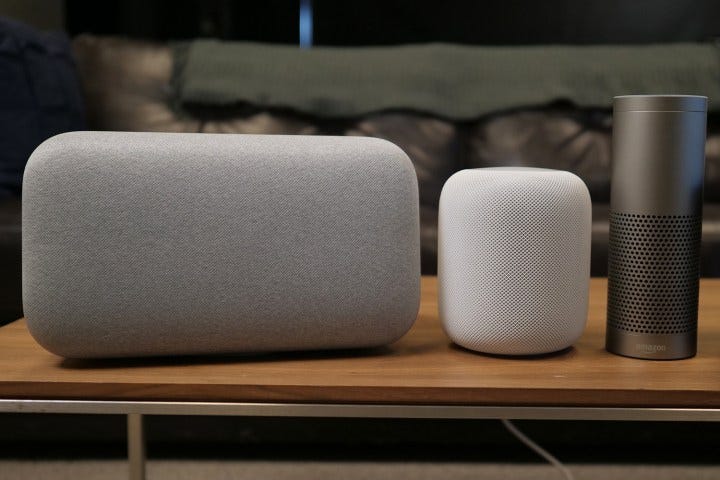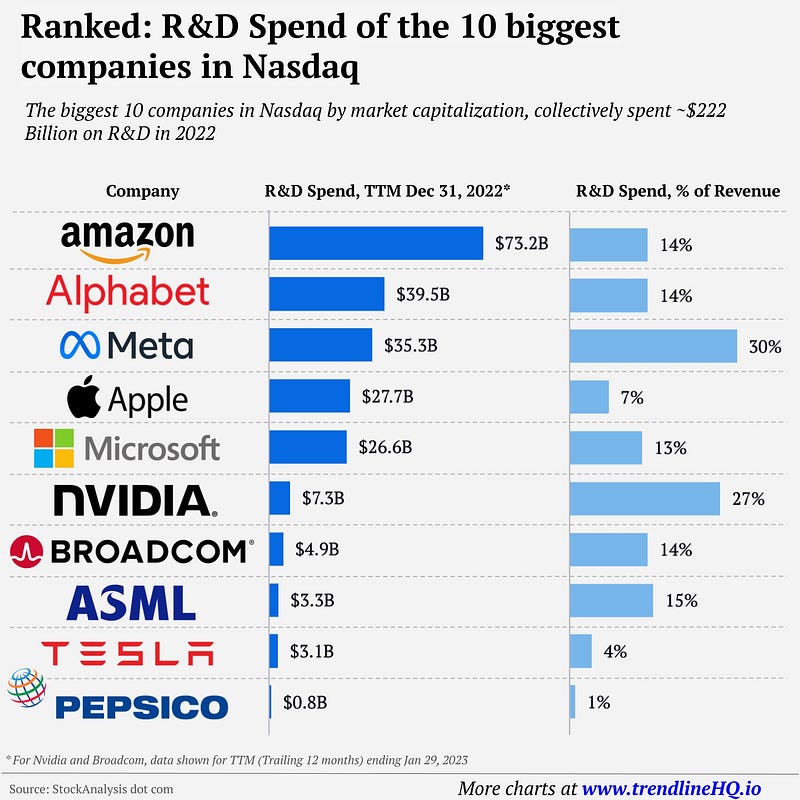Here Is Why Apple Is Struggling in the AI Competition
Written on
Chapter 1: The Current AI Landscape
Apple has historically led the charge in technological innovation, introducing groundbreaking products like the iPhone and AirPods. However, as the industry shifts towards Artificial Intelligence, it appears that Apple is no longer at the forefront.
The competition in AI has intensified, with tech giants such as Microsoft, Google, and others striving to create intelligent technologies that can adapt and learn. AI is now an essential component for companies across various sectors, prompting even brands like Nvidia and Canva to integrate AI features into their offerings. For companies like Apple, incorporating AI has become crucial for survival.

Section 1.1: AI's Growing Importance
If you've tuned into product launches or keynotes from major tech firms, you'll notice that almost all have highlighted AI as a central theme, with Apple notably absent from this trend. This raises concerns about Apple's position in the market.
While companies like Google and Amazon adopt an open strategy towards AI, utilizing vast data available online to accelerate development, Apple’s rigid privacy policies may hinder its progress. While Apple prioritizes user privacy, it inadvertently slows the pace of AI advancements, especially in generative AI technologies like ChatGPT, which are critical in today's AI landscape.

Subsection 1.1.1: The Privacy Dilemma
Privacy is as integral to Apple as AI is to Google. Apple has consistently advocated for customer privacy, which has solidified its loyal user base. However, this commitment also significantly limits the speed of its AI technology advancements compared to competitors like Google and Amazon.
Section 1.2: Apple’s Privacy Commitment
Craig Federighi, Apple's Senior Vice President of Software Engineering, often emphasizes the company's dedication to user privacy. The recent iOS 17 update introduced features like “Check In,” which alerts designated contacts when a user arrives home safely. If something appears amiss, the feature shares critical location information with those contacts.
While beneficial, these privacy-centric features illustrate how Apple prioritizes user security above all else. Although such features distinguish Apple from many tech giants, they also restrict the development of advanced AI capabilities.
AI thrives on data; the more it receives, the better it performs. In contrast, companies like Google and Amazon, which adopt a less stringent privacy stance, can access vast amounts of data, enabling them to enhance their AI systems more effectively. Siri, Apple's voice assistant, suffers from this data limitation, processing information locally rather than leveraging cloud-based resources, resulting in a less capable AI compared to alternatives like Google Assistant or Alexa.
Chapter 2: Industry Comparisons
Analyst Ming-Chi Kuo suggests that Apple is working on its generative AI technology, but it is lagging behind leaders such as OpenAI and Google. This delay is largely due to Apple's strict privacy policies that limit data flow, a critical factor for AI training and refinement.
Consequently, while other companies have been rolling out generative AI features since early 2023, Apple is unlikely to launch its offerings until late 2024, aligning with its major OS updates.
Section 2.1: Competitive Edge
Apple's rivals have rapidly advanced in AI, thanks to their willingness to compromise on user privacy for enhanced AI performance. Their open policies and substantial investments in AI have allowed for swift innovation. As an Apple enthusiast, this situation leaves me feeling both proud and frustrated, a common sentiment among Apple fans.
In the smart home arena, companies like Google and Amazon have significantly improved their natural language processing capabilities, benefiting from looser data regulations. While Apple's commitment to privacy is commendable, it poses an ethical dilemma in an AI landscape that requires extensive data for advancement.

Section 2.2: Future Implications
With AI technology progressing rapidly, the question arises: where does this leave Apple? More importantly, how does it affect loyal Apple users who appreciate privacy yet desire advanced AI features? Personally, I find myself envious of Microsoft's CoPilot and Google's Bard integration into their respective platforms.
While Apple may be trailing its competitors in technological innovation, I respect its steadfast commitment to user privacy. However, balancing these two aspects poses significant challenges.
Chapter 3: Evaluating Apple’s AI Investments
Many tech giants, including Amazon and Microsoft, have accelerated their AI development by investing in key AI-focused companies, such as Microsoft's substantial stake in OpenAI. Investment in AI is crucial for fostering innovation and maintaining competitiveness.
According to a recent Reuters report, Apple has invested approximately $22.61 billion in research and development through 2023, a portion of which is aimed at AI research.

Section 3.1: Investment Comparisons
In contrast, Microsoft has dedicated $13 billion solely to OpenAI, while Amazon has invested nearly $4 billion in Anthropic, the company behind the AI assistant Claude. Google has also poured resources into AI, although specific figures remain unclear.
Given this context, the relationship between investment levels and AI development speed becomes evident. Companies like Amazon and Google, with their open strategies and substantial funding, have been able to innovate rapidly and launch products to market faster than Apple.
While Apple’s considerable R&D expenditure is noteworthy, it appears to be diluted across a broader range of initiatives, potentially slowing its AI development.

Section 3.2: Recommendations for Apple
To keep pace with competitors, Apple may need to rethink its investment strategy in AI. This could involve forming strategic partnerships, investing in AI startups, or allocating more R&D resources specifically to AI development.
To propel its AI capabilities, Apple could draw inspiration from how other leading companies have integrated AI features to enhance user experience.
Strategies for Acceleration
- Investing in Generative AI: Reports suggest Apple is channeling funds into conversational AI, possibly developing a tool dubbed 'Apple GPT.' This could lead to personalized audio experiences through AI in music, integrated with Apple Music.
- Integrating AI Across Products: By incorporating AI into existing products such as Siri and Face ID, Apple could significantly enhance user experience and efficiency.
- Subscription Services for AI: Apple could explore offering standalone AI subscription services, potentially generating substantial revenue.
- Exploring New AI Domains: Rather than simply following competitors, Apple could leverage its strengths to improve user privacy features and provide innovative solutions.
- Revising Corporate Philosophy: While challenging, gaining insights from industry experts and adapting to a more open collaboration approach could significantly boost Apple’s position in the AI race.
Chapter 4: The Road Ahead
The AI competition is not merely a battle among tech giants; it's a crucial determinant of the future landscape of innovation. Apple uniquely grapples with the challenge of reconciling its long-standing commitment to privacy with the data-driven nature of AI development.
Without access to significant user data, Apple may struggle to keep up with competitors or deliver the AI solutions its users desire. This could lead to a potential loss of users who may opt for brands that provide more advanced AI capabilities, especially those less concerned about privacy.
While I appreciate Apple's dedication to user privacy, the delicate balance between maintaining it and advancing in AI presents a significant challenge. The pressing question remains: Can Apple find a way to honor user privacy while simultaneously fostering AI innovation?
Ultimately, it’s not only about leading the AI race but also about how that race is conducted and the costs involved. Apple is known for its commitment to excellence, even if it means arriving late to the party. Will history repeat itself, positioning Apple as a leader in AI integration, despite a delayed entry?
Only time will tell.